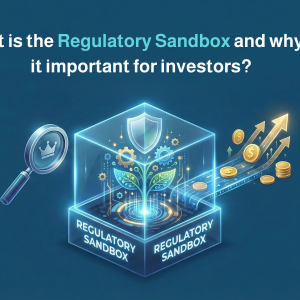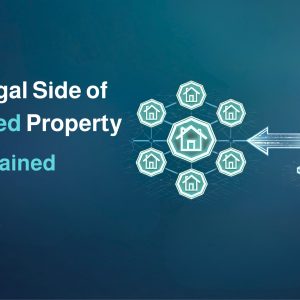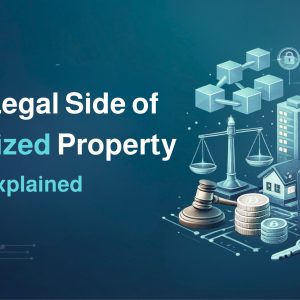In the current state of the global market and economy, many investors are looking to expand their investment options away from a single country. Shifting markets mean that some regions are growing faster than others, and others that were previously doing well have declined. It is not worth putting all your eggs in one basket; the same way we suggest you diversify your asset types, we also suggest that you look at international investing.
As for where to invest internationally , the answer isn’t so straightforward. While some regions may appear favorable in certain aspects, there may be hidden costs or legalities to consider. Recent trends indicate investors are moving towards Europe, parts of Asia, and the Middle East. This could be due to the decline in the strength of the dollar and increased interest in foreign stocks and property.
To help answer the question, “Where to invest internationally?” We have put together a quick guide to help you know what to look for, which countries are worth investing in, how to handle legal and financial concerns, and how platforms like Gamma Assets make global investing a simple and accessible process.
You can start investing now from the Gamma Asset Investment Platform
How to Decide Where to Invest Internationally
So you have decided you would like to invest abroad, so where to invest internationally is naturally the next logical thought. We do not recommend chasing the highest returns, but rather that you find a region or several regions that fit your goals, risk tolerance, and time horizon. To be well-informed, we recommend you make your decision based on a few key factors.
Political and Economic Stability
We would suggest, while looking for foreign countries to invest in, that you look for countries with a strong legal system, a steady government, and a track record of economic resilience. Topping the list of investor-friendly countries are the United States, Germany, and Singapore. These countries are known for their economic strength and can offer more predictable returns.
Currency and Inflation Risk
Currency value and subsequent shifts can greatly impact your returns. If you are investing in a region with an already weak or volatile currency, you may lose on the conversions. Countries that have a stable currency, i.e. ,the Euro, U.S. Dollar, or Swiss Franc, could help reduce the risk when deciding where to invest internationally.
Market Access and Regulations
It is important to do your research, as not all countries have the same love for investors; some will only offer limited investment opportunities, and some will impose heavy taxation on foreign investors. As a foreign investor, you need to ascertain whether you will be able to invest directly or if you need to make use of a local fund, and what permits you will need.
Sector Strength
The sector strength is going to differ in different regions; some may have a strong real estate sector, while others may have stronger tech or green energy sectors. It is important that you match your interests and goals with the country’s key investment sector.
Choosing where to invest internationally is going to be a game of balance between risk and opportunity. It starts by identifying the countries that tick your boxes.
What to Invest in When Looking at Where to Invest Internationally
So you have narrowed down the “where” you would like to invest internationally, but you are still thinking of the “what”. What should you be putting your money into? We would always suggest diversification, spreading your investments out over multiple asset classes to ensure the risks are mitigated. The various assets offer different benefits depending on your strategy, timeline, and risk tolerance.
Stock and Exchange-Traded Funds (ETFs)
If you want direct exposure to a country’s growth, stocks may be the option for you. Looking at where to invest internationally for long-term growth, it would be best to set your sights on well-established markets like the U.S., Japan, and Germany, to name a few. ETFs make diversification across entire sectors or countries easy, as you aren’t required to pick individual stocks.
- Real Estate
International real estate is a great option for investors looking to create an income and capital appreciation. Whether this be from buy-to-let properties in Dubai or even commercial properties in the UK. It is important to pay close attention to the local laws and taxes, as they vary in each region, and you want to be compliant with regulations. If you are unsure of where to invest internationally, it is important to look for countries where the rental yields are high, population growth, and or urban development plans.
Bonds
If you are looking for stability, then Government or corporate bonds may suit your needs. For the investor who is focused on preservation and income, a developed market would offer lower risks, while an emerging market would offer higher returns but is more volatile.
Alternative Assets
Alternative assets include REITs, Private equity, and tokenized real estate. Platforms like Gamma Assets allow investors access to fractional ownership of international property. This is a great hands-off method of diversifying your portfolio.
Figuring out where to invest internationally is about more than just the location; it’s about the mix of assets that align with your financial goals.
Top Countries and Regions: Where to Invest Internationally in 2025
Considering where to invest internationally should be reliant on your financial plan, goals, time horizon, and risk tolerance. We have compiled a list of options for your perusal. While there are many more options, these are some that we thought may be appealing to international investors.
| Region/ Country | Why we like it | Best investment option | Risks |
| United States | Global tech hub, strong legal protection, deep financial markets | Stocks, ETFs, residential & commercial properties | Currency exposure, capital gains for foreigners |
| Germany | Stable economy, green energy transition, manufacturing strength | Bonds, ESG-focused funds, industrial property. | Slower growth, high taxation |
| United Arab Emirates (UAE) | Investor-friendly laws, tax advantages, property demand | Rental apartments, off-plan property, REITs | Market saturation, short-term oversupply |
| India | Fast-growing economy, strong tech sector, rising middle class | Tech stocks, infrastructure, long-term equity | Bureaucracy, currency volatility. |
| Vietnam | Low labor costs, export-driven growth, alternative to China | Emerging market funds, residential property | Liquidity concerns, regulatory complexity |
| Saudi Arabia | Vision 2030 reforms, infrastructure investment, regulated platforms like Gamma Assets | REITs, infrastructure funds, tokenized assets | Limited diversification, market is still maturing. |
Legal and Financial Considerations When Choosing Where to Invest Internationally
When deciding where to invest internationally, it is vital to have an understanding of the legal and financial landscape. Your returns can suffer if you have not planned for taxes, restrictions, or currency conversions. Some markets may not be accessible to foreign investors at all.
Taxes on Foreign Investments
Tax is dealt with differently in different countries. Some countries will apply a withholding tax on dividends or rental income, while others will charge capital gains taxes on foreign investors. It is important to check whether your home country has a double taxation agreement or DTA with the country you are investing in, meaning that you don’t get taxed twice for the same property income.
Currency Exchange and Repatriation
Investing in other countries means currency exchanges. Should the local currency weaken, your returns could drop significantly once converted back into your home currency. Hedging tools are used by some investors to mitigate risk. It would be worthwhile checking if the country you are investing in allows the repatriation of profits. Some markets limit or delay how and when you can transfer your earnings back home.
Ownership and Access Rules
Many countries have restrictions on foreign ownership; in some countries, foreigners need to use government-approved agencies to buy land, as they cannot do so on their own. With an understanding of the rules, you can avoid regulatory hurdles and unnecessary legal fees.
Platform Regulations
When you are exploring where to invest internationally, it is important to choose a platform that is regulated in both your home country and the country you are investing in, protecting your capital and ensuring that you remain compliant with laws on either side.
While legal and financial planning might not get the blood pumping, it is often the difference between a smooth investing experience and a costly lesson.
Making It Simple: Why Gamma Assets Helps You Know Where to Invest Internationally
You have researched and narrowed down where to invest internationally, the next logical question is how, how do you go about investing internationally, while feeling safe and confident? Here is where Gamma Assets comes in.
Gamma Assets is a digital investment platform. The aim is to make global investing more accessible to all investors. Gamma Assets offers fractional, asset-backed opportunities in established international real estate markets. This allows the investor to diversify their portfolio with very low risk while remaining hands-off. While this all sounds amazing, the best part is that you don’t need to have been investing from the womb or have generational wealth to get started; you can get started investing from as little as 500 USD or SAR. Gamma Assets simplifies the process by providing clear information, low entry points, and full regulatory compliance.
Gamma bridges the gap between opportunity and taking action, especially for investors in the Gulf region, navigating cross-border rules and repatriation concerns. If you are unsure where to invest internationally, or would like to avoid the usual legal and logistical slog, Gamma Assets is a reliable and Sharia-compliant place to start.
Knowing where to invest internationally is about more than just picking your favorite or trending country; it is about aligning your goals and financial plans with the right markets, assets, and strategies. With the combination of the right tools, platform, and information, global investing can be both accessible and rewarding. No matter what your reasons for investing, Gamma Assets can help you get started.
More topics can be read on the Gamma blog
FAQ
Can Saudi investors legally invest in the US, EU, or GCC markets via local platforms?
Yes. Saudi investors can access international markets through CMA-regulated platforms or licensed intermediaries. This includes stocks, real estate, and private market investments in the US, Europe, and across the GCC.
What are the currency, tax, and repatriation considerations for offshore investments?
Returns can be affected by currency fluctuations, especially when investing in countries with weaker or volatile currencies. The taxes will vary by country, and many countries apply capital gains or withholding taxes for foreign investors. It is important to ensure that profits can be legally and efficiently repatriated.
Which foreign asset classes are recommended (stocks, property, bonds)?
It depends on your goals. Stocks and ETFs offer growth potential. Real estate provides income and asset stability. Bonds are generally lower risk and deliver consistent returns. A mix of these assets will help balance risk across your international portfolio.













